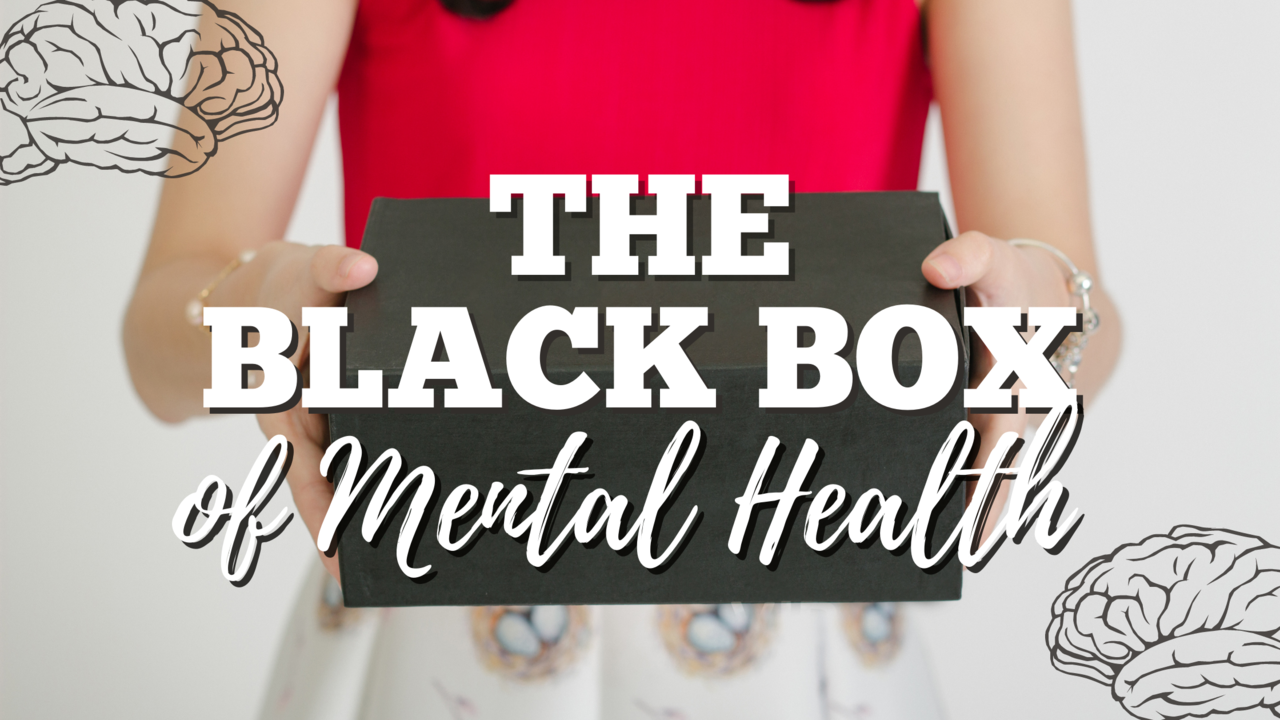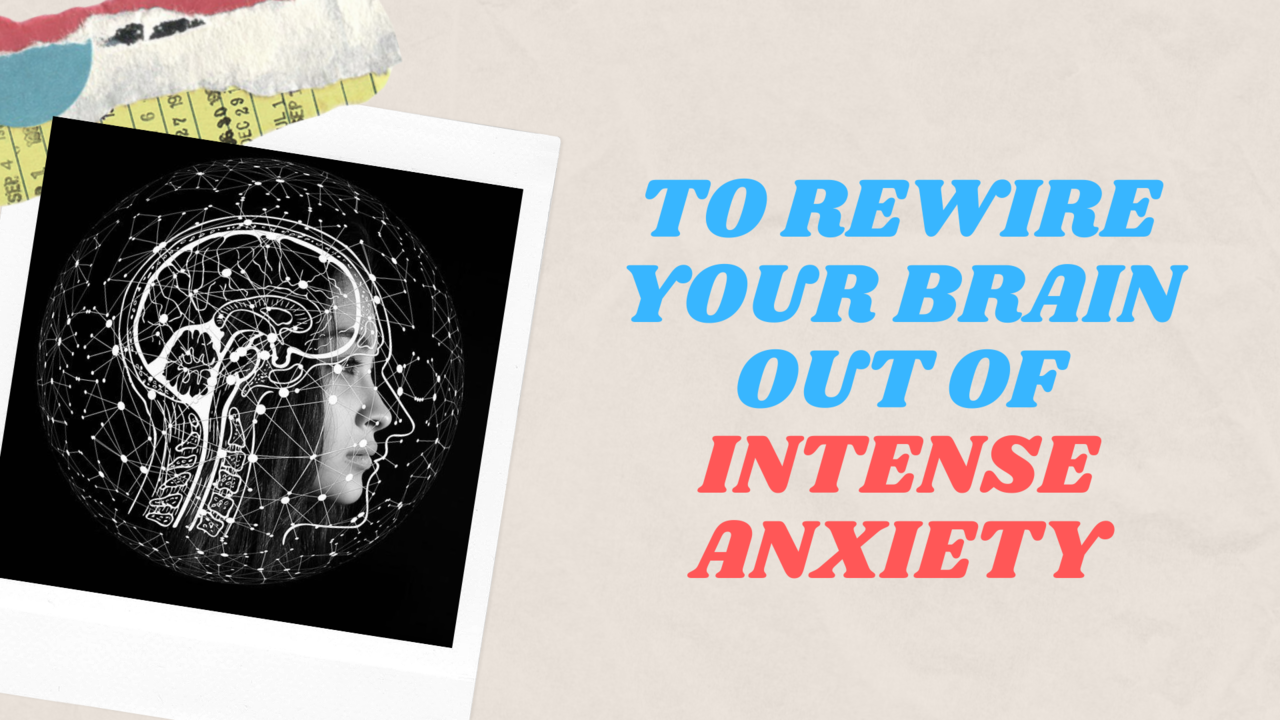Blog...information you need to stay on The Journey.
Julia Kristina and Dr David Purves talk about achieving mental wellness

Julia Kristina is a You Tube sensation, with over 197,000 subscribers and tens of millions of views. She agreed to talk with me about the her experience of helping people with mental health problems to change their mindset and move towards more thinking about mental wellness instead. I found her a fascinating and entertaining guest. Watch the interview here.
To learn more about Julia Kristina visit her website: www.juliakristina.com
Or, simply search for her on You Tube.
The Alternative To The Problem Is The Solution
Problems exist and persist in the absence of an alternative to that problem. The alternative has to be specific and directly relevant. In the absence of this specific alternative there is no way the problem can go away, because it is not being challenged to go away. This video explains more.
The Black Box of Mental Health

The Black Box of Mental Health
Why it’s hard to get help and why you are not helped…much with mental health problems.
Mental health problems are like the black box in an aeroplane, we all know it exists, but we have no idea what’s in it or exactly how it works. We know anxiety exists, as does depression, but what are they really? We know the labels for things but not what the labels signify. This presents us with a problem because, without adequate language to explain and to understand a problem, it is very hard to know how to resolve it.
I was interviewed on BBC radio yesterday about emotional burnout, which seems to me to be simply a different name for chronic stress. Nevertheless, the presenter’s questions were focused on what can be done to combat emotional burnout, as if the assumption of its existence was ‘given as read’. There seems to be little interest in the fact that mental health issues are ubiquitous, in all developed countries, and significantly rising in many, and ...
How to manage Covid stress
As if the Covid-19 pandemic was not bad enough two studies published this week reveal that anxiety in the UK has reached an all time high and that Covid-19 related anxiety, stress and depression has also has also reached an all time high.
If you follow my work, you will be aware that my passion is to create self help based solutions to problems like panic, anxiety, depression and stress. The video in this blog post will explain more about how to manage Covid Stress
Prof Nick Freemantle published research this week that revealed a dramatic 'explosion' in anxiety in the UK. Researchers are usually measured in their language but he described it as a 'profound increase in anxiety' caused by a number of circumstances but staring with the financial crash in 2008 and continuing through to the Covid threat.
His study examined the data from 6.6 million NHS patients. I will give you one example from the data that I find startling. In 2008 8.42% of women aged 18-24 suffered anxiety. In 2018 ...
What are you willing to pay for a year of good health?

What would you pay for a year of good health?
This is an interesting question because the government of most countries do actually place a monetary value on health and, to them, the cost of treatment. We have all heard stories of this or that drug which seems life-saving, but sadly, is too expensive and so the individual has to go without it. This is national news. But these decisions are happening all the time. I was researching this more deeply and I came across a recent Australian research paper that puts a figure on how much an individual is willing to pay for a year of good health.
Based on data from 28,347 people in Australia a person is willing to pay for a Quality Adjusted life year (QUALY) (a year of good health) from between £23,000 and £37,000 (I have done the currency conversion from Australian dollars.
Also, an individual is prepared to pay £1112 for not having a long-term condition, almost like a health tax!
What fascinates me about this is how much money someone is ...
Is my worry excessive?
Worry is normal, but, how do you tell if you are worrying to much? This is an important question because excessive worry is a really key feature of some anxiety disorders like, Generalised Anxiety Disorder (GAD) and Health Anxiety. And it is similar to some of the troubling processes seen in depression and other psychological problems like PTSD and OCD. Indeed, overthinking and rumination can look and feel a lot like worry. So, it is doubly important to be able to figure out if your worry is excessive because then you can do something about it. Without this knowledge you are helpless. To learn how to stamp on worry join The Anxiety Wizard Program and jump straight into the brilliant worry tools. These will teach you simply how to master worry. https://www.drpurves.online/store/BcNoi5Yf
How to rewire your brain to remove intense anxiety

I turned this podcast into a video. Rewiring your brain out of intense anxiety is about learning to have less and less anxiety each day until you literally forget to be anxious. When I work with clients on face to face CBT I know that the sessions have done their job when the client forgets to have a problem.
The same thing happens with The Anxiety Wizard Program. The progressive lessening of panic, anxiety, depression or stress over the time working on the program is very gratifying to witness.
Eventually those who have put in the effort have rewired their brain such that anxiety no longer gets produced. They have literally changed the physical structure of their brain and hence have a different life experience.
Everyone can learn. This is just a simple fact of life. So it is not that much of a leap of the imagination to accept that you can learn to leave anxiety behind. To learn more about The Anxiety Wizard Program visit my website. www.drpurves.online
If you want it to die don't give it mouth to mouth resuscitation
All intrusive thoughts, memories or sensations have one thing is common.
YOU HAVE FED THEM.
Sorry, I know it seems strange but it is true. The converse is also true.
THE LESS YOU FEED THEM THE EASIER THEY DIE.
What this translates to is this: You are giving mouth to mouth resuscitation to things you actually want to die. You are feeding things that seriously detracting from your mental health. I do know that your experience is likely to be 'I am not doing it, it just happens'. And of course that is how it feels because you have fed these destructive processes for quite a long time.
The alternative is this:- I was talking to a man today who has been using Anxiety Wizard for 8 weeks. He related all of the improvements in his life but the one most pertinent here is that he said he went for long periods of time where he forgot to be anxious. He even noted that he had days where anxiety was partially of completely forgotten and only when he remembered he had forgotten to be anxious ...
Are you a prisoner of fear?
If this pandemic has taught us one thing it is that some things we took for normal were not necessarily always that great. I know that many people are struggling right now but there is an emerging tension between what we did and what we can do.
For many years I used to commute to London. It was expensive, tiring and now for many people unnecessary, certainly to the degree previously done. The social element is a big miss, but the work itself still gets done.
How many millions of miles were travelled to have face to face meetings with people? It turns out Zoom is pretty good. The meetings are more focused now, at least.
I have not conducted therapy sessions in my office since March and it seems to be working pretty well. Clients still recover and get on with their lives.
Maybe as we shake things up and arrive at the 'new normal' we might consider also leaving the prison of fear as well.
Fear is the emotion that drives all anxiety problems: panic, GAD, OCD, worry, phobia, social an...
It is easy to predict the future but not so easy to be correct.
It is easy to predict the future but not so easy to be correct.
The reason that it is easy to predict the future is that many things seem so obvious. For instance, the economy is going to struggle because of the combined effects of Brexit, the Pandemic and trade wars etc make this seem obvious.
That people are going to continue to be over-prescribed anti-depressants and anxiolytics seems obvious, given that the rates of prescription have doubled in 10 years.
It is harder to predict if people will start to take more responsibility for their own mental health. My special interest is in promoting Self Help Cognitive Behaviour Therapy (SH-CBT) because my mission is to eradicate unnecessary mental health problems. In all honesty, I am not at all sure this will happen in my lifetime!
Some reasons this prediction is hard to make:-
- At school you learn history and biology etc but you learn nothing helpful about avoiding mental health problems.
- You have been taught that psychological pr ...
